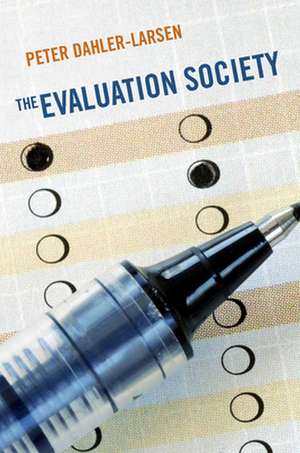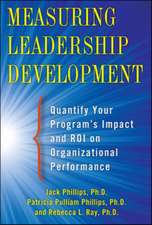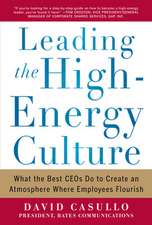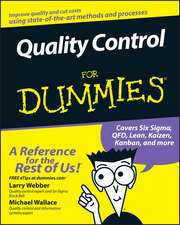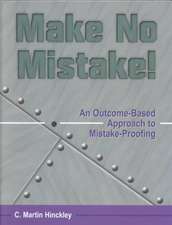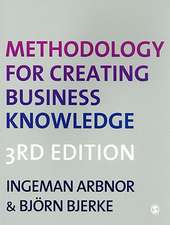The Evaluation Society
Autor Peter Dahler-Larsenen Limba Engleză Paperback – 31 aug 2013
Evaluation—whether called by this name, quality assurance, audit, accreditation, or others—is an important social activity. Any organization that "lives in public" must now evaluate its activities, be evaluated by others, or evaluate others. What are the origins of this wave of evaluation? And, what worthwhile results emerge from it?
The Evaluation Society argues that if we want to understand many of the norms, values, and expectations that we, sometimes unknowingly, bring to evaluation, we should explore how evaluation is demanded, formatted, and shaped by two great principles of social order: organization and society. With this understanding, we can more conscientiously participate in evaluation processes; better position ourselves to understand many of the mysteries, tensions, and paradoxes in evaluation; and use evaluation in a more informed way. After exploring the sociology and organization of evaluation in this landmark work, author Peter Dahler-Larsen concludes by discussing issues that are critical for the future of evaluation—as a discipline and a societal norm.
The Evaluation Society argues that if we want to understand many of the norms, values, and expectations that we, sometimes unknowingly, bring to evaluation, we should explore how evaluation is demanded, formatted, and shaped by two great principles of social order: organization and society. With this understanding, we can more conscientiously participate in evaluation processes; better position ourselves to understand many of the mysteries, tensions, and paradoxes in evaluation; and use evaluation in a more informed way. After exploring the sociology and organization of evaluation in this landmark work, author Peter Dahler-Larsen concludes by discussing issues that are critical for the future of evaluation—as a discipline and a societal norm.
| Toate formatele și edițiile | Preț | Express |
|---|---|---|
| Paperback (1) | 260.76 lei 6-8 săpt. | |
| Stanford University Press – 31 aug 2013 | 260.76 lei 6-8 săpt. | |
| Hardback (1) | 775.26 lei 3-5 săpt. | |
| Stanford University Press – 8 noi 2011 | 775.26 lei 3-5 săpt. |
Preț: 260.76 lei
Nou
Puncte Express: 391
Preț estimativ în valută:
49.90€ • 52.23$ • 41.53£
49.90€ • 52.23$ • 41.53£
Carte tipărită la comandă
Livrare economică 31 martie-14 aprilie
Preluare comenzi: 021 569.72.76
Specificații
ISBN-13: 9780804788618
ISBN-10: 0804788618
Pagini: 280
Dimensiuni: 152 x 229 x 23 mm
Greutate: 0.36 kg
Editura: Stanford University Press
Colecția Stanford Business Books
ISBN-10: 0804788618
Pagini: 280
Dimensiuni: 152 x 229 x 23 mm
Greutate: 0.36 kg
Editura: Stanford University Press
Colecția Stanford Business Books
Recenzii
"It is a challenge to look at evaluation from the outside—as an inherent part of a wider social context. The Evaluation Society is a 'wise' book that successfully introduces readers to this innovative point of view. It, indeed, inspires thinking, raises questions, and sheds light on some hidden corners of evaluation as a social phenomenon."—Miri Levin-Rozalis, Ben-Gurion University
"Terrific book! The Evaluation Society introduced me to a new way of thinking about evaluation, and I came away with great ideas that will definitely inform my work."—Leslie Goodyear, Education Development Center
"I have read so many books on evaluation that the prospect of a new one now fills me more with ennui than with enthusiasm. Imagine my pleasure, then, to find that Peter Dahler-Larsen had produced something genuinely different. The Evaluation Society is thoughtful and far-reaching in its insights and implications. Illuminated by moments of real eloquence, it moves easily between down-to-earth examples and philosophical profundities. It should be added to that small collection on the shelf nearest to one's desk—the books that need to be there because they actually get used."—Christopher Pollitt, Emeritus Professor of Public Management, Catholic University of Leuven, Editor-in-Chief, International Review of Administrative Sciences
"This is a cogent, persuasive, compelling, and clever examination of how evaluation practices are required, designed, and fashioned by both organizational logics and conceptions of society. It should be required reading for evaluation practitioners, as well as all professionals who engage in evaluation as part of their work."—Thomas A. Schwandt, University of Illinois at Urbana-Champaign and Editor, American Journal of Evaluation
Notă biografică
Peter Dahler-Larsen is Professor in the Department of Political Science at the University of Copenhagen. Prior to his current appointment, he built and directed the Master's Program in Evaluation at the University of Southern Denmark. A past president of the European Evaluation Society, Dahler-Larsen is especially interested in the cultural and institutional aspects of evaluation.
Descriere
Any public or private organization that "lives in public" must now evaluate its activities, be evaluated by others, or evaluate others. But, data from an array of settings and countries indicate that very few evaluations result in any changing action. So, why insist on evaluating? And, what worthwhile results emerge from evaluation? This book answers these questions, using evaluation and organizational theory to offer a fresh perspective.
